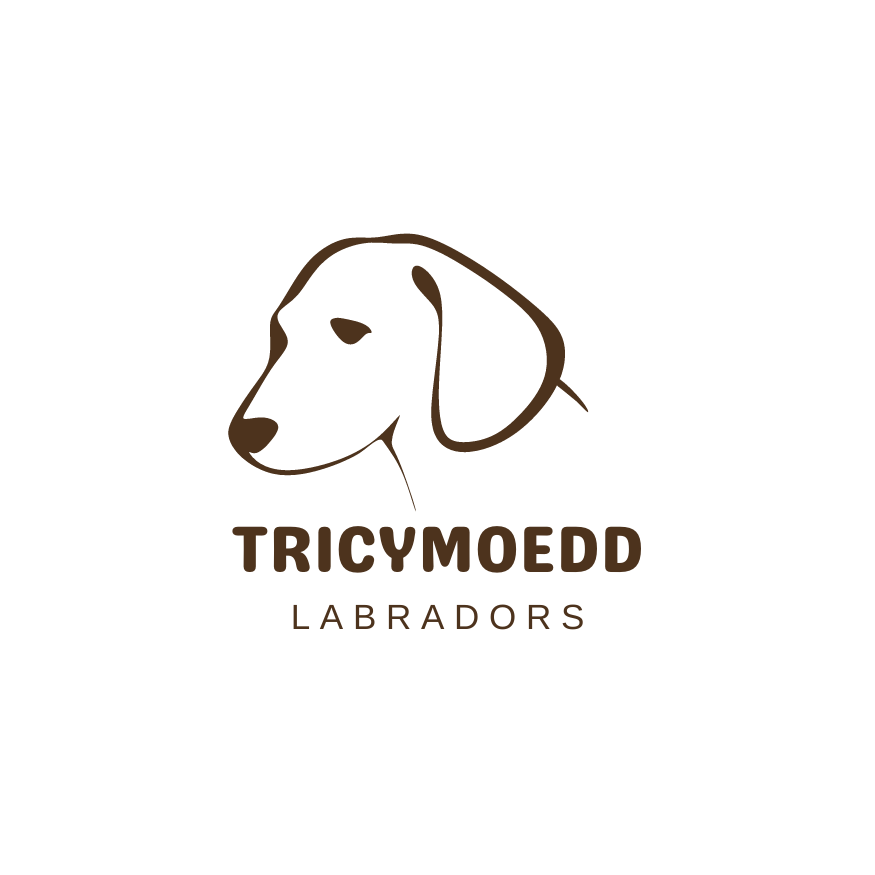Labradors are a wonderful breed that combine beauty, intelligence, and a loyal loving nature. If you’re considering adding one to your family, then it’s time to do your research and get clued up on these remarkable retrievers.
For forty years, I’ve had the privilege of sharing my life with Labrador Retrievers. These amazing dogs have not only been my most faithful companions but they’ve become an integral part of my life.
Whether you’re a prospective Labrador owner, a longtime enthusiast, or simply a curious soul, you likely have questions about this magnificent breed. From their origins to their endearing quirks, from health and training to unravelling myths, let’s get your Labrador questions answered by a total Labrador devotee!
1. Where Are Labradors From?
Labradors originate from an island in Canada called Newfoundland, part of the Labrador region, that is miles away! So how did they end up being one of the UK’s most popular dog breeds?
Back in the 1800’s, fishermen from all over Europe sailed to Newfoundland, and they brought their dogs with them. It’s thought that the Labrador’s lineage can be traced back to a blend of genes from dogs brought on board ships by Spanish, French, Portuguese, and English fishermen, who had developed a profitable trade in dogs.
These dogs, originally St John’s Dogs, are thought to be the ancestors of our beloved Labrador Retrievers. They worked alongside their fishermen, retrieving fish, nets, longlines and occasionally other items that blew overboard!

They were brilliant working dogs, their short oily double coats repelled the water, their resilient determination to perform knew no bounds… and their webbed toes made them excellent swimmers.
When these dogs arrived in Poole harbour, England, it wasn’t long before they caught the eye of the 2nd Earl of Malmesbury, and the 5th Duke of Buccleuch. These two chaps were pivotal in the beginnings of the Labrador Retriever breed.
It was these two aristocrats who began breeding the dogs for working on shoots – the Labrador’s ability to keep up with the speed, stamina and self control required made them a breed who grew rapidly in popularity.
2. What Were Labradors Bred For?
Labradors were originally bred to work with their humans and retrieve. From their early days retrieving fish and helping on ships, to working on shoots and retrieving game – they’ve gone on to support humans in a myriad of ways.
They now excel in various roles, including search and rescue, guide dog assistance, medical detection, and in many pet homes as dependable companion and emotional support dogs.
3. Are Labradors Easy To Train?
Labradors are super smart and eager to please, which makes them very trainable. They were bred to work with humans which translates into a dog who wants to work with you, cooperate with you, and be a loyal companion.
Coming from working lines, Labradors have been trained for hundreds of years to show impressive self control, follow instructions, and to do so willfully to please their human.

Some dogs are quicker to learn than others, but in all honesty, every dog is trainable if you put the effort in and remain consistent.
I love training dogs, spending time with them makes my heart happy. If you’re looking for a Labrador that comes ready trained by someone who has the experience, patience, and desire to get it right, you’re in the right place!
If you want a Labrador but don’t want to do all the training – consider buying a part trained dog. Learn more about choosing a part-trained labrador here.
4. How Much Exercise Do Labradors Need?
Labradors are great because if you want to walk them 20 miles a day, they’ll happily do that. If you want to walk 500 yards a day they’ll happily do that, they’ll fit into your life.
The most important thing is that your Labrador doesn’t get bored, but there are many ways to keep your Labrador entertained that go beyond exercise.
From scentwork to enrichment games and training – giving your Labrador mental stimulation is just as important as physical exercise for these very intelligent dogs.
Some Labradors will be more high energy, and those dogs will often do best in a working home where they are regularly exercised and worked. However, some Labradors are calmer and will happily plod along with you – just happy to be with their favourite human, living life alongside you.

At Tricymoedd, we’re experts in profiling our puppies to help match them with their perfect home. Choosing a dog goes well beyond choosing a breed, they are all individual. Each of our puppies is raised to bring out the very best in them – and part of that is making sure they land in their best fit home.
Talk to us about choosing the right Labrador for you.
5. Do Labradors Shed?
When it comes to shedding, Labradors are moderate shedders. While they do shed year-round, they tend to have seasonal “blowouts” where they shed their undercoat more heavily in the spring and autumn.
Regular grooming, including brushing at least a few times a week, can help manage their shedding and maintain a healthy coat. Despite their shedding tendencies, many Labrador owners find their loving companionship and playful personalities more than make up for the occasional need for a lint roller.
Proper grooming and a balanced diet can contribute to keeping your Labrador’s coat in top condition while minimising excessive shedding, ensuring both a happy dog and a cleaner home.
6. Can Labradors Be Left Alone?
While you can teach your Labrador to be left alone for short periods, they certainly wouldn’t choose it! They were bred to work alongside people and so they want to be with you.
Labradors are a very sociable and loyal breed who are happiest when with their favourite people. Whether that’s snuggling up nearby to you, cuddling on the sofa or going on an epic hike, with you is where they want to be. They are often great in a multi dog household, they are social dogs and love a buddy!
7. Are Labradors Good With Kids?
Absolutely! Labradors are renowned for their friendly, gentle and affectionate nature, which makes them great with children and other pets. They’re a very popular choice for a family dog, since they’re so loving, easy to train, and happy to be around those they love.

Labradors make great therapy dogs for the same reasons, often used as guide dogs, emotional support dogs and even as medical alert dogs. Their desire to make their humans happy knows no bounds.
8. How Long Do Labradors Live?
On average, Labradors typically have a lifespan of about 10 to 12 years. However, with good genes, a healthy diet, and regular exercise, some Labradors can live even longer, sometimes reaching 14 years or more.
Genetics, lifestyle, and overall health play significant roles in determining an individual Labrador’s lifespan. Choosing a dog who’s been bred from parents who’ve been comprehensively evaluated for health scores as well as temperament is really important.
9. When Do Labradors Stop Growing?
Labradors typically stop growing in terms of height and reach their full adult height at around 12 to 14 months of age. However, their bodies may continue to fill out and gain muscle mass until they are about 18 to 24 months old.
It’s essential to note that the exact timing of when a Labrador stops growing can vary from one dog to another, and factors such as genetics and nutrition can influence their growth rate.
During this growth phase, it’s crucial to provide them with a balanced diet that supports their development and to ensure they receive appropriate exercise to help build strong muscles and maintain a healthy weight. We highly recommend Fish4Dogs, a omega-3 rich dog food that is easy to digest and highly nutritious.
Regular veterinary check-ups can also help monitor their growth and ensure they are on track to stay healthy. Labradors are a large breed, with a predisposition to joint issues. Rapid growth, slippery surfaces, and over exercise should be avoided, as it can increase the likelihood of developing joint and bone issues.
10. What Labrador Health Issues Do I Need To Know About?
All dog breeds have a genetic propensity to encounter specific health issues and Labradors are no different. Labradors are generally robust and healthy dogs, but like all breeds, they can be prone to certain common health issues.
It’s essential for Labrador owners to be aware of potential health concerns and to closely check the health scores of the parent’s of any puppy you’re considering buying.
Hip Dysplasia: A genetic condition where the hip joint doesn’t develop properly, leading to arthritis and mobility problems.
Elbow Dysplasia: Similar to hip dysplasia, this condition affects the elbows and can lead to lameness and joint pain.
Progressive Retinal Atrophy (PRA): An inherited eye disease that can cause gradual vision loss and, in severe cases, blindness.
Obesity: Labradors have hearty appetites and can be prone to weight gain. Obesity can lead to various health issues, including joint problems and diabetes.
Ear Infections: Their floppy ears can trap moisture, making Labradors susceptible to ear infections. Regular cleaning and proper ear care are essential.
Bloat (Gastric Dilatation-Volvulus): This life-threatening condition can affect Labradors, especially those that eat too quickly or engage in strenuous activity after eating.
Heart Disease: Labrador Retrievers may develop heart-related issues, such as cardiomyopathy or valve disease, as they age.
Hypothyroidism: A condition where the thyroid gland doesn’t produce enough hormones, leading to weight gain, lethargy, and skin problems.
Cancer: Labradors are susceptible to various forms of cancer, including lymphoma and mast cell tumours.
Osteoarthritis: As Labradors age, they can develop arthritis, causing joint pain and reduced mobility.
Responsible breeding practices can help reduce the risk of genetic disorders in Labradors. A good breeder will be evaluating the health scores of not just the parents, but of past generations to reduce the likelihood of puppies developing common health problems in the breed.
Health scores to check when choosing a Labrador puppy include:
1. Hip & Elbow scoring
2. Eye testing
3. DNA Testing
At Tricymoedd, we go beyond the recommended DNA tests and complete a total of 14 health tests for our dogs. Breeding healthy dogs is something we’re incredibly serious about, and we take these tests on a regular basis to ensure we’re always ahead of the game.
11. When Do Labradors Calm Down?
Labradors typically start to show signs of calming down as they enter adulthood, which is around 2 to 3 years of age. However, it’s important to note that the exact timing can vary from one Labrador to another.
Just like people, Labradors have unique personalities and energy levels. Some may naturally have a more relaxed temperament from a young age, while others remain active and playful for a bit longer.

Proper training and socialisation can help a Labrador learn to manage their energy and behaviour. A recent Tricymoedd litter went off to train to become guide dogs for the blind – when evaluating these pups we saw that they were empathetic, calm and incredibly resilient, making them much more suited to assistance dog work than working a shoot.
Learn more about this wonderful litter and how they became guide dogs here.
Regular exercise and mental stimulation play a significant role in a Labrador’s energy level. Providing them with ample opportunities to burn off energy through walks, play, and activities can contribute to them becoming calmer.
It’s important to remember that Labradors will always retain some level of their playful and active nature throughout their lives. They are a breed well known for their friendly and enthusiastic disposition. As they mature, they may become more focused and easier to manage, making them wonderful companions for families and individuals alike.
Proper training, exercise, and patience are key to helping your Labrador become a well-behaved and content adult dog.
12. How To Pick A Labrador Puppy From The Litter?
At Tricymoedd, we consistently emphasise the importance of looking beyond a dog’s appearance when choosing the right puppy for your home. It’s not about what a puppy looks like; rather, it’s about the perfect match between individual people and individual puppies.
It’s important to consider your lifestyle and what drives your motivation to get a dog. Do you want a high energy dog that’ll work with you with impressive focus and precision? Or do you want a family pet who’ll join you on walks and snuggle on the sofa?
Our dogs are an integral part of our lives, residing with us and working alongside us, making them our closest companions. Some of our dogs are epic working dogs that belong in active, working roles. And some are better suited to family life with a couple of fun walks a day.

We have an intimate understanding of each one of the puppies we breed and we’d be happy to help you in finding the ideal puppy that suits your unique needs. Whether you seek a family pet, a dedicated working partner, or an assistance dog, we possess the expertise and patience to connect you with the right dog for your lifestyle.
In Conclusion
I hope this blog has not only answered your Labrador questions but that it’s sparked a greater appreciation for these loyal companions who have shared their hearts with generations of families.
Over the years, I’ve witnessed firsthand the deep bonds formed between people and their Labrador companions and I’ve been fortunate to help guide countless individuals on their journey to Labrador ownership.
They truly are remarkable dogs, and in my mind – there’s no greater companion in this world than a Labrador Retriever.
.



